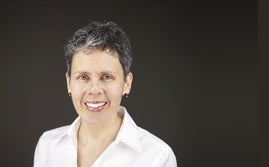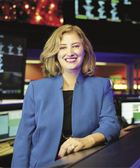Hospitals, health systems expand urgent care presence
On Worcester's busy Shrewsbury Street, in a newly-constructed facility next door to a gym and a Little Caesar's Pizza, is Reliant Medical Group's ReadyMED PLUS urgent care center, where patients who have everything from a rash to a fever can go to receive treatment.Across town on Lincoln Street in another high-volume area, UMass Memorial Health Care affiliate CareWell Urgent Care sees patients seven days a week, treating wounds, joint pain and allergic reactions, among other things. A second CareWell on Greenwood Street does the same. And outside city limits not too far off of I-495 in Marlborough, CareWell is renovating what will be its fifth Central Massachusetts location.
These are just a small fraction of the region's many new urgent care centers, walk-in clinics that treat patients for health issues that are important, but not matters of life or death. The centers, many of which are either partnered with or extensions of local healthcare networks, are rapidly popping up across Central Massachusetts, as the region starts to feel the ripples of a national trend. More than half a dozen clinics are scheduled to open over the next year alone.
Some Central Massachusetts health providers, like Heywood Healthcare in Gardner and Harrington HealthCare System in Southbridge, have themselves branched out into the urgent care space, using their own doctors and putting their names and brands on the clinics. Others, like UMass Memorial Health Care and MetroWest Medical Center, have instead partnered with national chains that specialize in urgent care, like CareWell, MedPost, or AFC/Doctors Express.
Both approaches have their advantages and disadvantages, providers said. Being affiliated with a larger healthcare network can help create better continuity when it comes to treating patients, they said.
New demand
Growth in the urgent care market is nothing new – clinics have been on the rise for awhile. According to the Urgent Care Association of America, there are currently about 7,100 urgent care centers across the U.S., and between 300 and 600 new clinics open each year.
But that trend has been applicable to Central Massachusetts only recently, said Shaun Ginter, CEO of CareWell. That's partially due to the fact that most people have health insurance, which makes getting in to see a doctor somewhat difficult, he said.
“Massachusetts has hit a point where access is a challenge,” he said. “People can no longer easily gain access to primary care and get the medical care they need based on the physician shortage. I think that's why urgent care has become an important part of the Massachusetts community as of late.”
Since CareWell launched in 2012, it has opened 14 locations in Massachusetts and one in Rhode Island, Ginter said. Their affiliation with UMass Memorial allows CareWell to refer patients to UMass Memorial's primary care offices or emergency room, and for UMass Memorial to send patients to urgent care.
It can be difficult for a larger provider network to run an urgent care center because the clinics operate in a totally different way than healthcare networks do, Ginter said. Urgent care centers, with evening and weekend hours and retail plaza locations, are consumer-driven, treating issues as they arise, he said. On the other hand, healthcare networks are more focused on population health management.
“The benefit is, we're out in the community providing urgent care services, and they're there for follow up care, more complicated care,” Ginter said.
Other healthcare networks have taken a different approach. Harrington, which serves southern Worcester County, chose to expand itself into the urgent care space to increase access to health care and introduce more patients to the network, said President and CEO Edward Moore.
“We felt we've got to get to the table before someone comes into our market,” Moore said.
Last fall, Harrington opened its first urgent care center in Charlton. When it opened in September, its hours were 9 a.m.-7 p.m. during the week and 9 a.m.-5 p.m. on weekends, Moore said. By summertime, the doors were open at 8 a.m. Harrington has also expanded the facility, so it now has seven exam rooms instead of five.
Next month, Harrington will open a second urgent care, in Oxford, Moore said. The Charlton urgent care sees about 35 patients a day, but Moore said he anticipates the volume will be much higher in Oxford.
“Once we put our stake in the ground – and we have – I don't think anybody would make a big investment to come in and compete with us because they'll see we control the market,” he said.
Emergency room impact?
Some may see urgent care centers as a cheaper, faster alternative to the emergency room. But urgent care centers are not a replacement for the ER, doctors said.
In fact, very few visits to urgent care centers result in emergency room referrals, at least in the case of Reliant Medical Group. Reliant, which has been operating ReadyMED urgent care clinics for years, refers maybe three to five percent of its urgent care patients to emergency rooms, said Dr. Rajneesh Hazarika, medical director of same-day services.
For the most part, patients who need a referral from an urgent care setting can find the appropriate specialist within Reliant's vast network of medical services, Hazarika said, and they can also be easily referred to other primary care networks if that's what they prefer.
“If the patient is a non-Reliant patient -- if he or she has UMass primary care, and wants to go into the UMass system, we are completely supportive of that,” he said. “We can burn a CD of an X-ray, or send copies of all notes to primary cares within a few days.”
Heywood Hospital's emergency room has also not seen much of an impact due to the new urgent care center, which opened in January, said President and CEO Winfield Brown.
“It's counterintuitive,” he said. “You might believe the emergency room volume has dropped, and it has not dropped for us.”
Quality assurance
When it comes to expanding into urgent care, one of the challenges can be ensuring that the quality of care is the same as it would be in an emergency room or a primary care office.
Heywood's Gardner urgent care center is staffed with an advance practice provider – either a nurse practitioner or a physician's assistant – as well as medical assistants and an x-ray technician. If you really needed a doctor, that's no problem – the urgent care center connects in the back to a primary care office.
“That's a nuance to our model that's different than most models – we do have backup and connection to primary care practice during the week,” Brown said.
Heywood plans to replicate that model for a second urgent care location in Athol opening this fall. In fact, they're even moving a primary care office over from Phillipston just for that reason.
“The current primary care practice we have [in Phillipston] doesn't have the capacity to expand in size. We will have a bigger primary care practice as well,” Brown said.















0 Comments